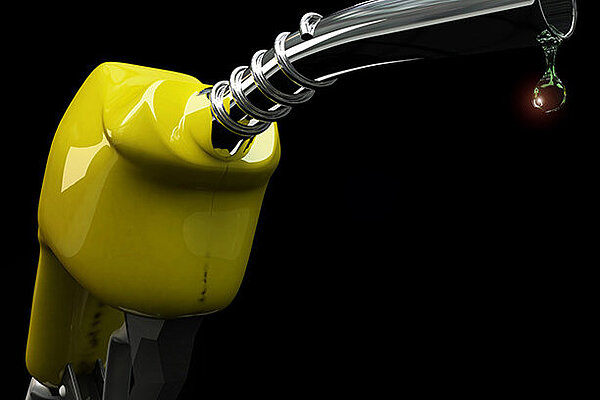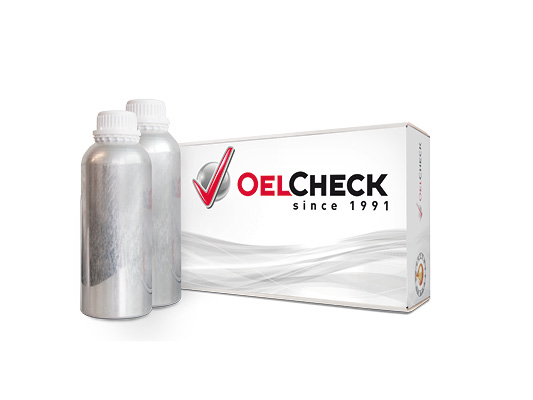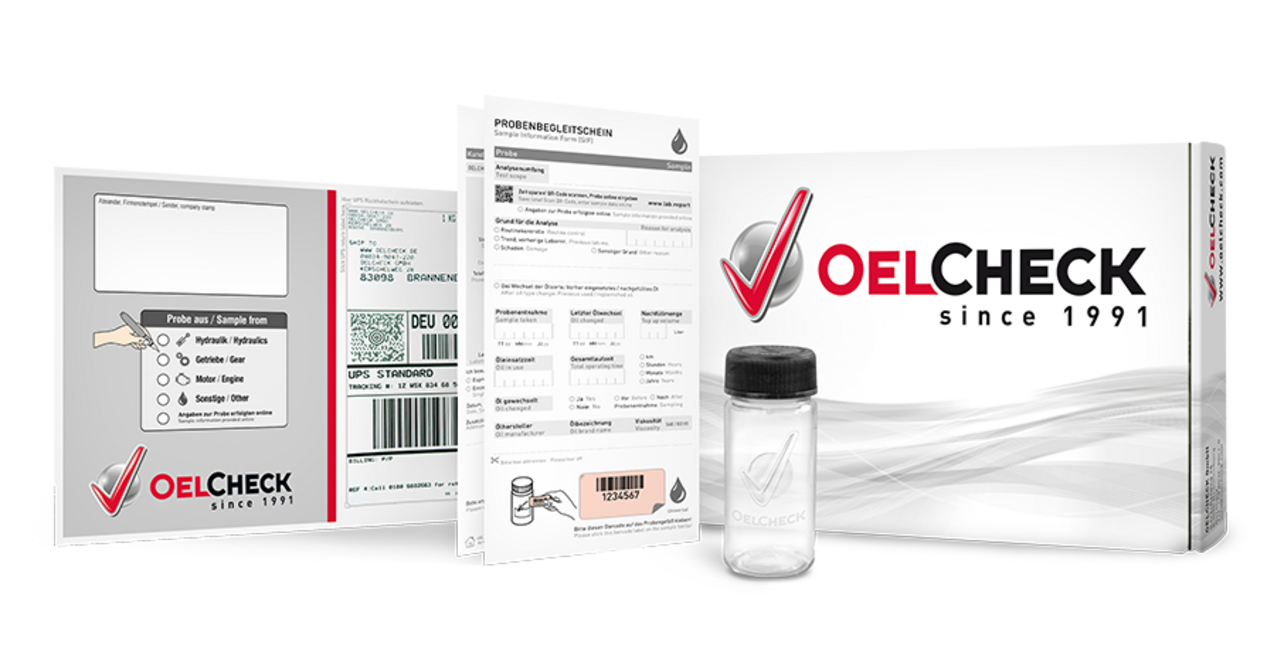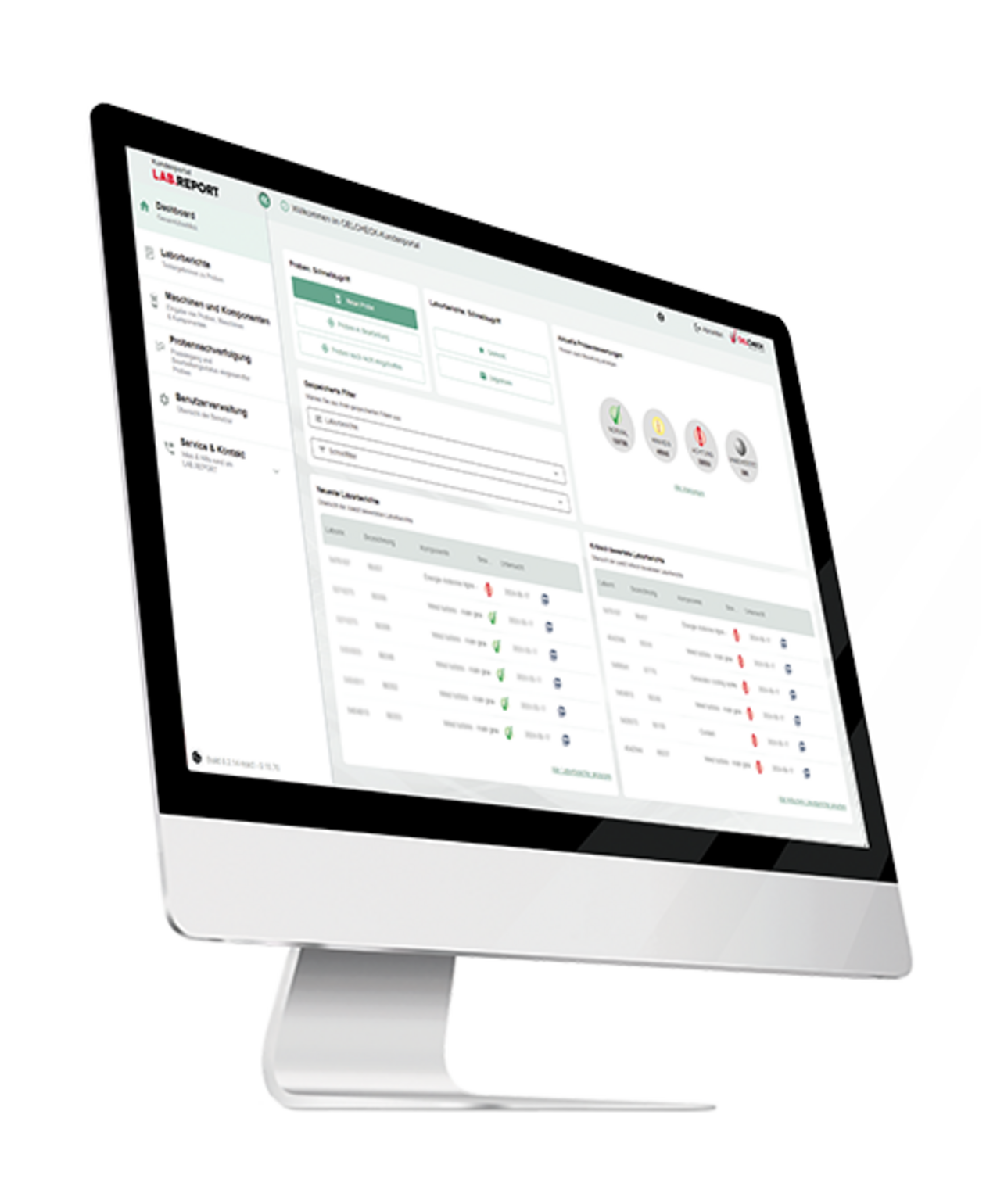Fuel all-inclusive analysis kit
Year of publication: 2023
OELCHECK is expanding its range with new all-inclusive analyses for almost all types of fuel. We have partnered with ASG Analytik-Service AG to bring to market all-inclusive analysis kits for petrol, synthetically produced e-fuels, EL heating oil and aviation and marine fuels from January 2023. All tests included shall be carried out pursuant to the applicable specifications set out by the DIN, ISO or ASTM standards. And this also applies to diesel, too.
By expanding our range, OELCHECK now offers all-inclusive analyses from a single source, whether you need to analyse oils, lubricating greases, fuels, coolants or AdBlue.
Joining forces with ASG
OELCHECK continues its tradition of analysing fuels in its own laboratory in Brannenburg (Upper Bavaria). Some parameters, however, are now also being examined by our partner ASG. OELCHECK has entered into a new partnership with ASG to this end. Founded in 1992, Analytik-Service GmbH (and since 2021, Analytik-Service AG; ASG for short) is a DAkkS-accredited testing laboratory for fuel analyses based in Neusäß, near Augsburg. They have focused on both fossil fuels and renewables from the very beginning. Alongside standard and special analyses for liquid, solid and gaseous motor and heating fuels, their portfolio also includes the manufacture of test fuels and quality assurance materials.

Table of contents
Fuel analysis kits at a glance
The DIN, ISO or ASTM standards define the requirements – depending on the product – for the quality of the fuels as well as for checking their quality. OELCHECK will offer comprehensive analyses for the following product groups as from January 2023:
- Petrol
Complete scope of analysis pursuant to DIN EN 228.
For unleaded petrol. Also with the addition of up to 10 % ethanol,such as in Super E5, Super E10 and Super Plus.
- Diesel fuels
Complete scope of analysis pursuant to DIN EN 590.
For conventional fossil diesel fuels. Also with the addition of upto 7 % biodiesel, such as in B7.
Note: Diesel fuel containing biodiesel may be contaminated by bacteria. These multiply in the area between the fuel and water resting at the bottom of the tank. Frequently blocked fuel filters and lines, sludge-like deposits in the tank and the loss of engine performance are typical signs of diesel being infested with bacteria. OELCHECK’s additional test for contamination provides a quick, clear answer as to whether bacteria have formed in the fuel.
- Synthetic diesel fuels / E-fuels
Complete scope of analysis pursuant to DIN EN 15940.
For synthetic diesel fuels HVO and GTL.
1.4 billion cars and a huge number of commercial vehicles with internal combustion engines remain on the road around the world. Even though a vehicle’s largest CO2 emissions throughout its life cycle occur during production, it should be powered by alternative, carbon-neutral fuels where possible. E-fuels or synthetic fuels are increasingly the fuel of choice to move the running of such vehicles away from fossil fuels. Both e-fuels and synthetic fuels are expected to play an increasingly important role in protecting the planet, and as such OELCHECK is offering all-inclusive analyses for synthetic diesel fuels. Synthetic fuels are chemically produced or synthesised and can, in principle, originate from different sources.
GtL Gas-to-Liquids Fuel is an alternative synthetic diesel fuel produced using natural gas. It burns far cleaner than conventional diesel and emits significantly less dust and nitrogen oxide. GTL has a high cetane number (75-80) and therefore boasts higher combustibility and better combustion quality than fossil diesel. Where CO2 is used instead of natural gas as a carbon source to build up the hydrocarbons, this is referred to as e-diesel. This is, in fact, carbon-neutral, as the CO2 needed can be extracted from the air or separated during an industrial process. This means that no ’new’ CO2 is released from fossil sources, and the ’existing’ CO2 can be reused in a circular process.
HVO is based on hydrogenated vegetable oils, which are converted into hydrocarbons using a catalytic reaction with the addition of hydrogen. This is what is known as a second-generation biofuel. The result is a 100 % fossil-free diesel product made only from renewable raw materials. Using HVO, an engine’s CO2 emissions can be reduced by 65-90 % compared to conventional diesel.
- EL heating oil
Complete scope of analysis pursuant to DIN 51603-1.
For conventional EL heating oil and low-sulphur EL heating oil.
- AvTur
Complete scope of analysis pursuant to ASTM D1655.
For aviation fuel for jet aircraft, turboprop jets and helicopters.
- Marine fuels / Distillate fuels
Complete scope of analysis pursuant to ISO 8217.
For marine fuels in classes DM or DF.
These middle distillates are comparable to EL heating oil and diesel fuel. They are used in engines on cruise ships and inland waterway vessels.
- Marine fuels / Residual fuels
Complete scope of analysis pursuant to ISO 8217.
For marine fuels of the residual fuel type.
Any leftover fuel from refinery processes is referred to as residual or heavy fuel oil. These residual fuels are mainly used in large marine engines.
Sample quantities, containers and returns
The fuel all-inclusive analysis kits come with aluminium sample bottles. Each container has a capacity of one litre. However, two litres are required for running a petrol analysis. These analysis kits therefore go out to customers with two one-litre bottles.

IT IS ESSENTIAL TO OBSERVE THE FOLLOWING WHEN FILLING:
Please fill the sample bottles to the brim!
->
There must be no free space present to allow the fuel to release vapours in the aluminium bottle. If space is present, we will be unable to determine the vapour pressure correctly in the laboratory.
The new fuel all-inclusive analysis kits are valuable tools for incoming goods and overall quality control. They can also detect any contamination that may affect the operation of filters, injectors and other components. In practical terms, too, the principle of getting all your analysis kits from a single source simplifies the invoicing modalities and helps you maintain a clear overview of your costs.
OELCHECKER Winter 2022, page 9



